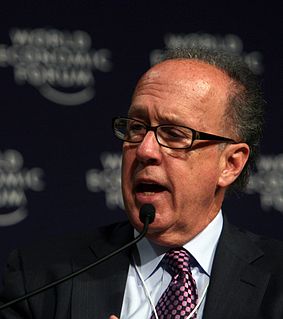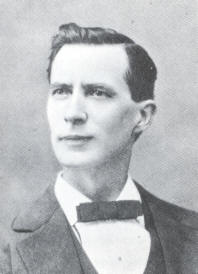A Quote by Stephen S. Roach
The pendulum of economic power might well begin to shift from capital back to labor.
Related Quotes
Let’s begin with capitalism, a word that has gone largely out of fashion. The approved reference now is to the market system. This shift minimizes - indeed, deletes - the role of wealth in the economic and social system. And it sheds the adverse connotation going back to Marx. Instead of the owners of capital or their attendants in control, we have the admirably impersonal role of market forces. It would be hard to think of a change in terminology more in the interest of those to whom money accords power. They have now a functional anonymity.
Thus, the capital owner is not a parasite or a rentier but a worker - a capital worker. A distinction between labor work and capital work suggests the lines along which we could develop economic institutions capable of dealing with increasingly capital-intensive production, as our present institutions cannot.
I'd love if people relearned the lessons of the 20th century all over again. Which is to say this country progressed economically and socially when we had a better balance between capital and labor. Neither capital or labor won every argument. The battle between the two created economic tension, and transformed the working class into the middle class, and grew the economy.
It is time that capital and labor realized that their interests are really comutual, as interdependent as the brain and the body; time they ceased their fratricidal strife and, uniting their mighty forces under the flag of Progress, completed the conquest of the world and doomed Poverty, Ignorance and Vice... Unless labor is employed, capital cannot increase - it cannot concentrate. Unless property rights are held inviolable and capital thereby encouraged to high enterprise, labor is left without a lever with which to lift itself to perfect life and must sink back to barbarism.
There could be an independent labor-based party, which might over time become an important force the way the Labor Party did in England. To all of these things there are plenty of barriers, in the culture and in the social and political institutions, the concentration of economic power. But these are not insuperable barriers, I think. They can be overcome. And it is urgent that this be done, because there are really incredible problems that are simply not being addressed.
At night, in the garden, it occurs to you that it might have been your heart that left you as you reached the capital. Your heart might not have travelled well, closed up in its cavity, quivering and gnawing at the bars of your ribcage during the commute. It might be tracking north now, along edgelands, past spoil-heaps and stands of pylons, under motorway passes, back to the higher ground. Back to him.



































